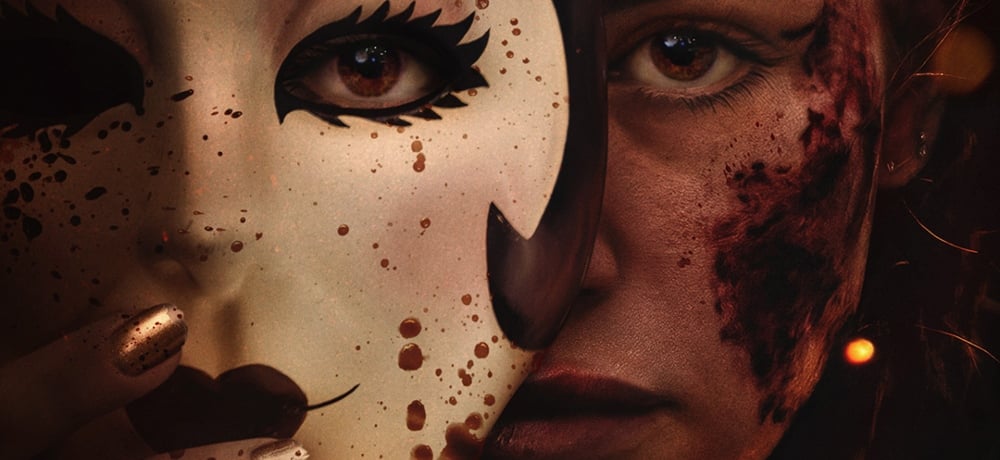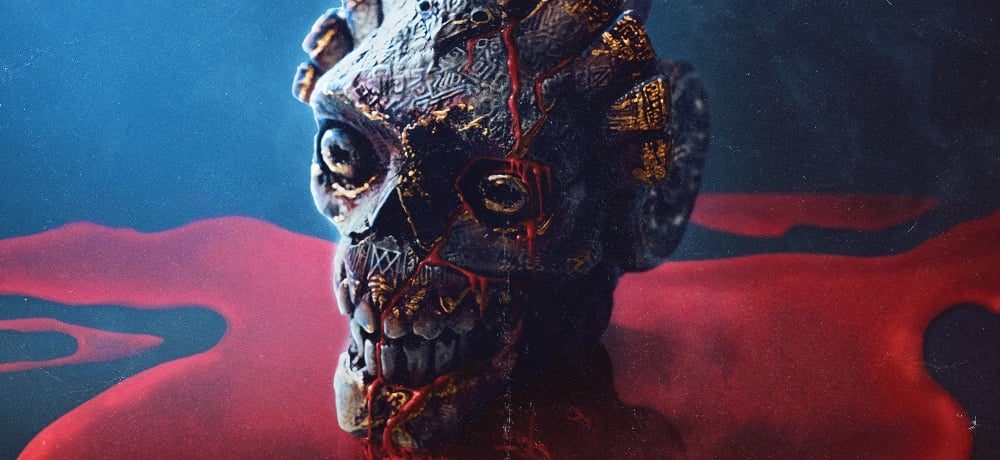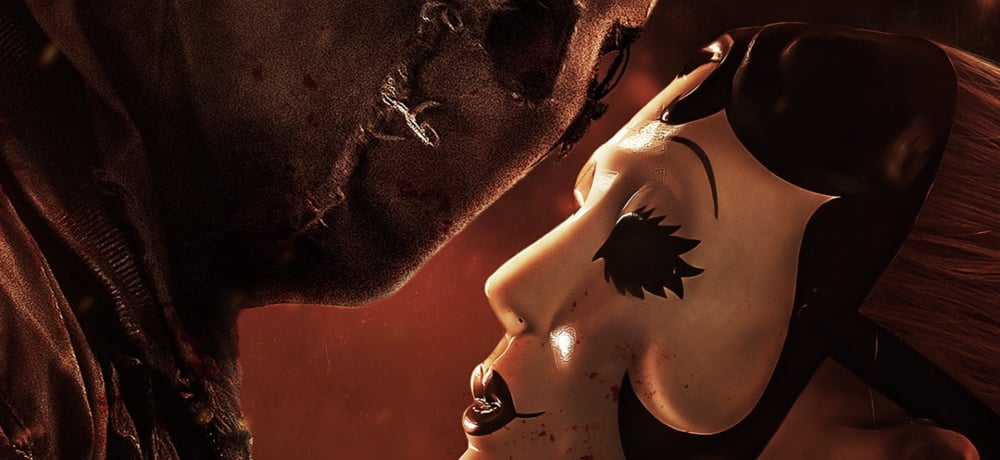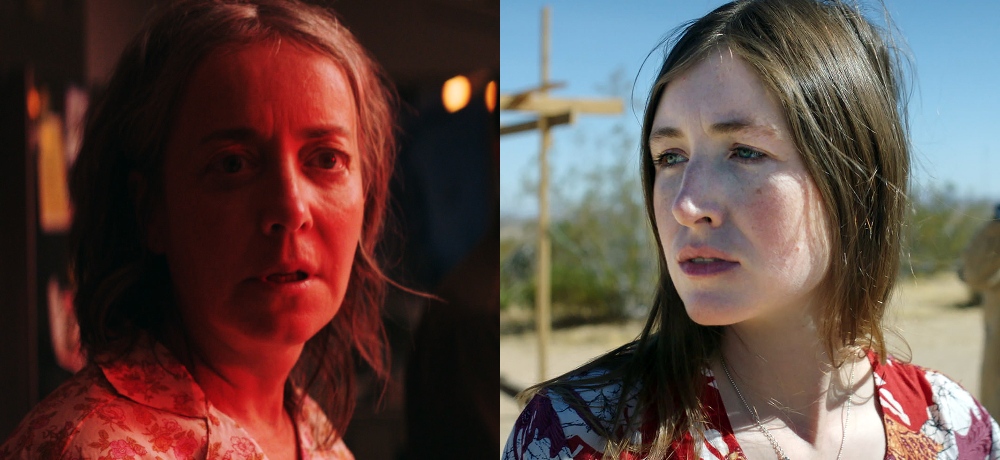






Currently playing select drive-ins around the country and available to stream on VOD and various digital platforms is She Dies Tomorrow from writer/director Amy Seimetz. The film follows several characters over the course of a day as they contemplate their own mortalities and face certain truths about their own existences.
Daily Dead recently had the opportunity to speak with two of the film’s co-stars, Kate Lyn Sheil and Jane Adams, about their experiences working on She Dies Tomorrow, and they chatted about collaborating with Seimetz, gender expectations, how the film influenced their own feelings on certain themes that the film explores, and more.
Great to speak with you both today, and congratulations on the film. Obviously, I’m sure one of the biggest draws for She Dies Tomorrow is getting to collaborate with Amy. But was there another hook for the both of you, in terms of coming into this project and taking on these characters?
Jane Adams: Oh, I love the concept of a mind virus. That's thrilling, and the fact that a friend of mine came up with it and wanted me to be a part of it was really just great.
Kate Lyn Sheil: I would echo what Jane said. It was the same for me.
A lot of this film feels very experimental and we're not relying on a huge narrative structure to get some of these themes across to viewers. Was this film wide open as a collaborative experience then? Or was the workflow a bit more structured?
Jane Adams: It was not improvised. I mean, there are a few things here and there maybe that somebody just says, but mostly Amy wrote it, gave us the pages, we had to learn the lines and play those scenes. And what Kate and I have talked about is Amy's great because she's an actress. We liked the way she directs, because she's very specific about what she wants and she does direct you, but she also knows that part of that is kind of staying out of your way and letting you do it. And she trusts us to do that, which is a nice feeling too.
Kate Lyn Sheil: I would say that there is a great deal of precision with her directing, even some of the physical things that I do. Like when I turned the record on and there's this dance-y moment and then I touch a wall. It wasn't like Amy said, "Just do whatever and we'll figure it out." She had a very specific idea of what that was going to look like and what the shot was. So yeah, I always find that there's something really nice about movies that are incredibly loose, but there's also something so nice about a director like Amy, who is very specific about what she's looking for.
One of the things I also really appreciate about this film is that, I don't know if it's that we necessarily need permission to be messy, but what I really loved about this is that it explores this concept of messy women. When we watch movies about women, it just feels like they're always given certain arcs and they have to act certain ways. And I thought that this really explored aspects of the feminine experience in ways I hadn't really seen before.
Jane Adams: But do you really think that's just a feminine experience, messiness?
No, not at all. With Chris Messina's character, he experiences something very different.
Jane Adams: But also like in life, don't you think men are just as messy as women?
Kate Lyn Sheil: Of course. But I think there's more permission to be seen as messy in the way they're represented.
Jane Adams: Oh, I think they're given much less permission. I think men are required to hold it, things together much more than women. I mean, you know?
Kate Lyn Sheil: Yeah, but there's this long tradition of sort of the irascible man or he's our hero, but he's also a drunk. I think there's far less of that with female representation.
Jane Adams: But aren't emotions messy? See, I don't think, like this idea that we're laying something as humans, like when people get messy, that's something we have any control over. Life is messy. Death is messy. The universe is just all this chaos, you know? And, the idea that you can somehow order the universe to be more comfortable than it is, is just ridiculous to me. Like, this whole idea, "Oh, they should be this way or women should be this or men should be that," it's just fairy tales. It is what it is.
Often times when grief and contemplating death are portrayed in cinema, it almost feels like characters are going through these very specific stages, but She Dies Tomorrow tackles it in a way where, while it is a universal experience, everybody's reactions in this movie felt very unique. These are things that we're all scared of at some point in our lives, but ultimately I think our reactions to it are very singular. I'm going to react differently than you will, Jane, or you would, Kate. And I think that was really interesting.
I'm curious, from your perspectives, were your experiences reflective of anything you’ve contemplated yourselves, in terms of hyour own feelings about mortality, or was there something that you came out of this experience learning about yourself?
Jane Adams: That's a really interesting question. I want to hear what Kate has to say first.
Kate Lyn Sheil: Well, I would say that in Amy's writing of my character, she baked into it, this quality of Amy in the character, like trying to have a moment of catharsis and failing to do so. There’s the idea that in these final moments, everywhere you go, there you are. So you're still messing up or not really seizing the moment in a heroic way. You're just sort of throwing stuff against the wall and seeing what sticks and none of it is sticking. And there's something very relatable in that to me and very human and very much like myself. So yeah. I just love the writing, basically is what I'm saying.
Jane Adams: Yeah, I do too.
Was there anything that you came away from this experience with, Jane, in terms of having certain ideas about mortality? Did those ideas shift at all or was it still pretty much the same for you afterward?
Jane Adams: Well, that's another great question. It's hard now with the way the world is now. I feel like, before when we were shooting the movie, what interested me is just the idea that we all only have today. You know, the only guarantee is we're alive right now. That's it. As soon as you get off this call, I might back my car out to go somewhere and get in an accident. That's it. There's no promised tomorrow.
So, that has always fascinated me. I've always been a little bit obsessed with that idea. Like when I was 19 years old in college, my friend Mandy used to say to me, "You have age paranoia." I was always really focused on, "Oh no, we're getting older,” because time is always flying past us. So I had that idea going into this movie and was really thrilled that Amy was writing about it. It didn't really change, but it's definitely become enhanced now that the film is being released in such a weird time.
The timeliness of this film is very unusual and it's interesting to me, where we’re seeing a lot of movies coming out where they're into these ideas of isolation and fear and mortality and things like that, but they were made like a year ago now. There’s a strange sense of prescience that I’ve been experiencing with certain films lately. And I find that extremely fascinating.
Kate Lyn Sheil: Did you find it comforting to see something that was strange because things are strange now?
I honestly did, because it made me feel a little less alone because everybody feels so cut off right now. It just felt nice to feel like, "Wow, there are other people out there sort of feeling this way, too."
Jane Adams: See, that's so great to hear. Amy will be happy to hear that also. Because I was just saying in another interview, even if I wasn't in this film, I think if I was home today and I desperately was like, "Okay, I've got to stream something", and I saw this film, I would be comforted by it. Because as weird as it is and strange as it is, it's dealing at least with things that must be on people's minds lately.
---------
In case you missed it, visit our online hub to catch up on our previous coverage of She Dies Tomorrow.